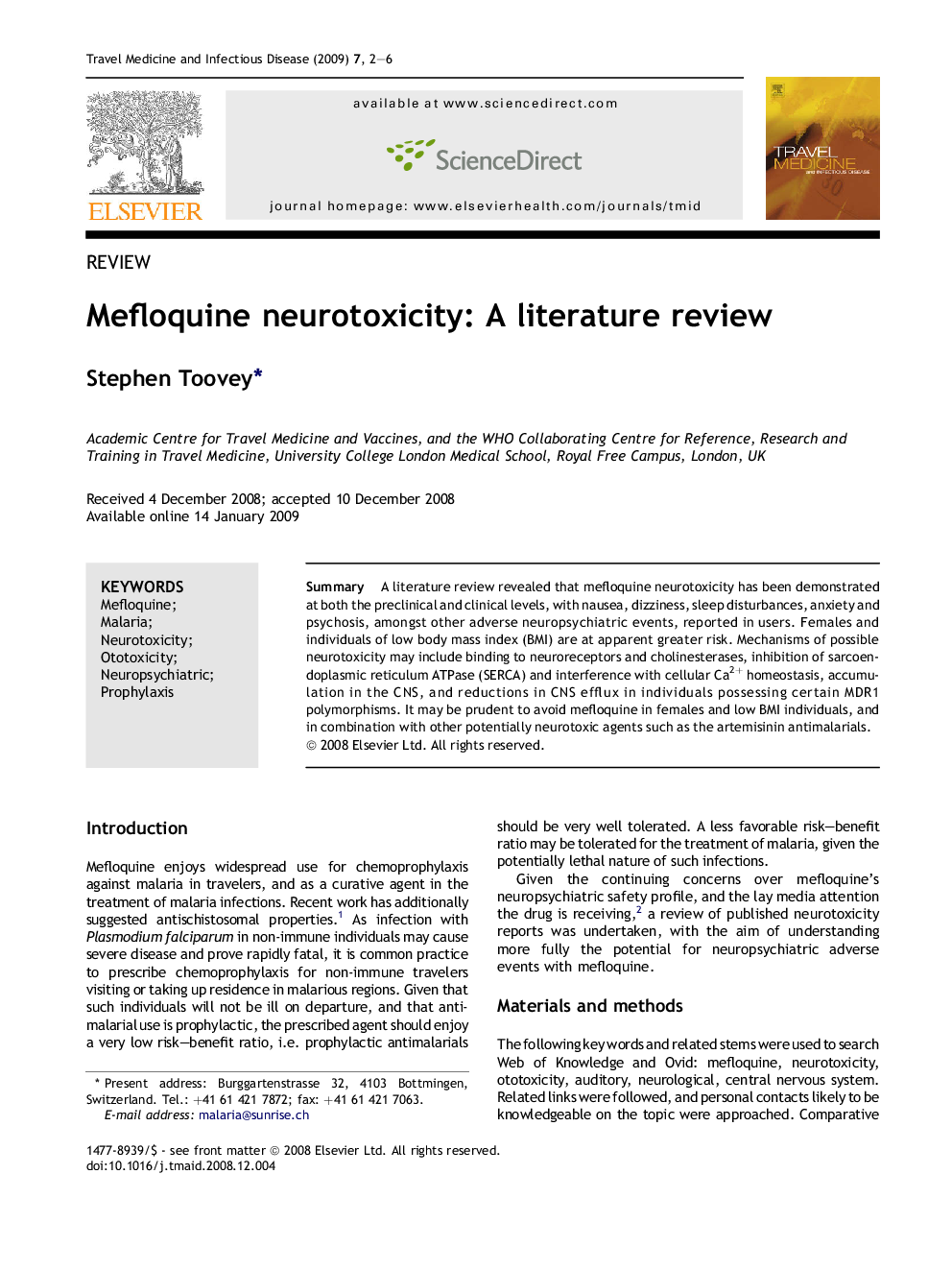| Article ID | Journal | Published Year | Pages | File Type |
|---|---|---|---|---|
| 3393500 | Travel Medicine and Infectious Disease | 2009 | 5 Pages |
SummaryA literature review revealed that mefloquine neurotoxicity has been demonstrated at both the preclinical and clinical levels, with nausea, dizziness, sleep disturbances, anxiety and psychosis, amongst other adverse neuropsychiatric events, reported in users. Females and individuals of low body mass index (BMI) are at apparent greater risk. Mechanisms of possible neurotoxicity may include binding to neuroreceptors and cholinesterases, inhibition of sarcoendoplasmic reticulum ATPase (SERCA) and interference with cellular Ca2+ homeostasis, accumulation in the CNS, and reductions in CNS efflux in individuals possessing certain MDR1 polymorphisms. It may be prudent to avoid mefloquine in females and low BMI individuals, and in combination with other potentially neurotoxic agents such as the artemisinin antimalarials.
